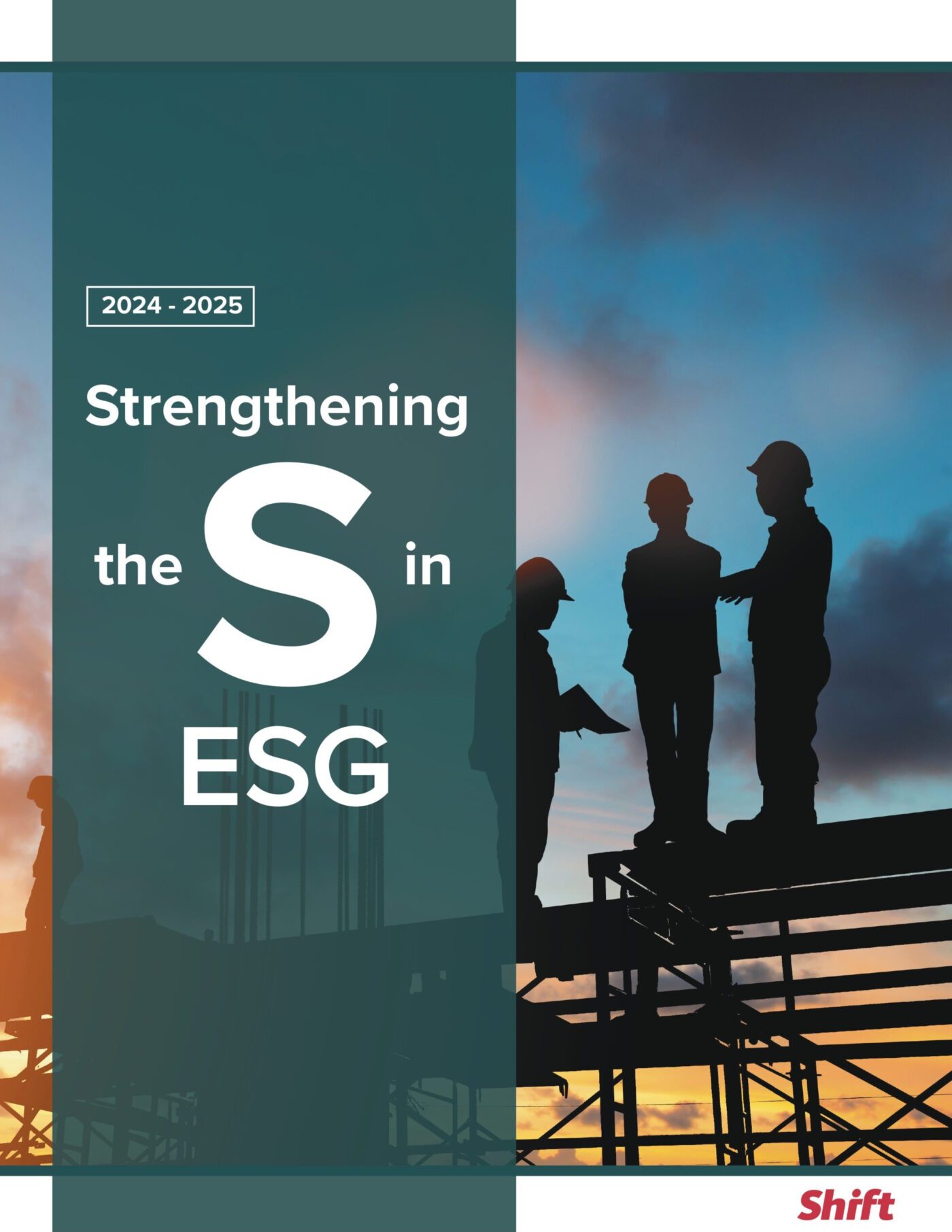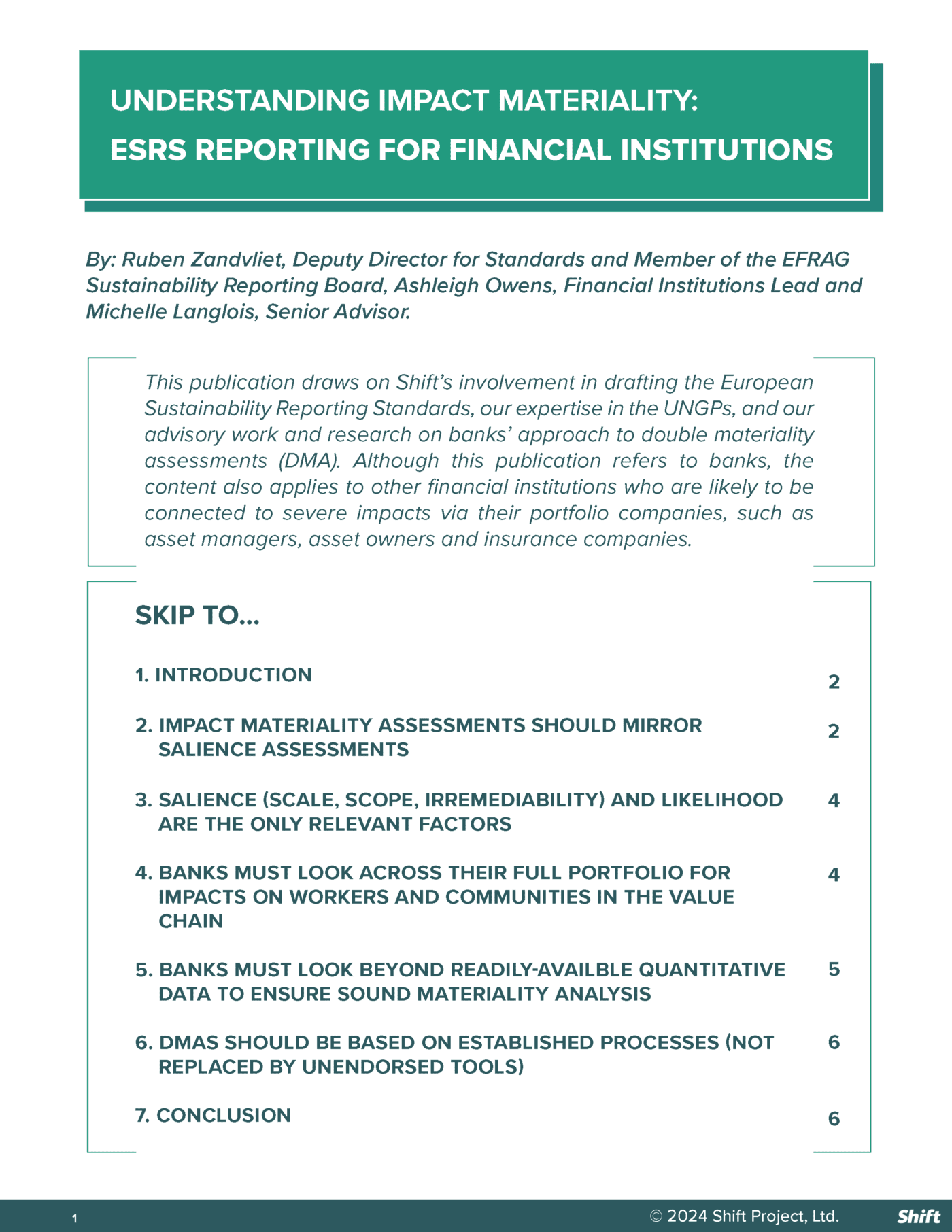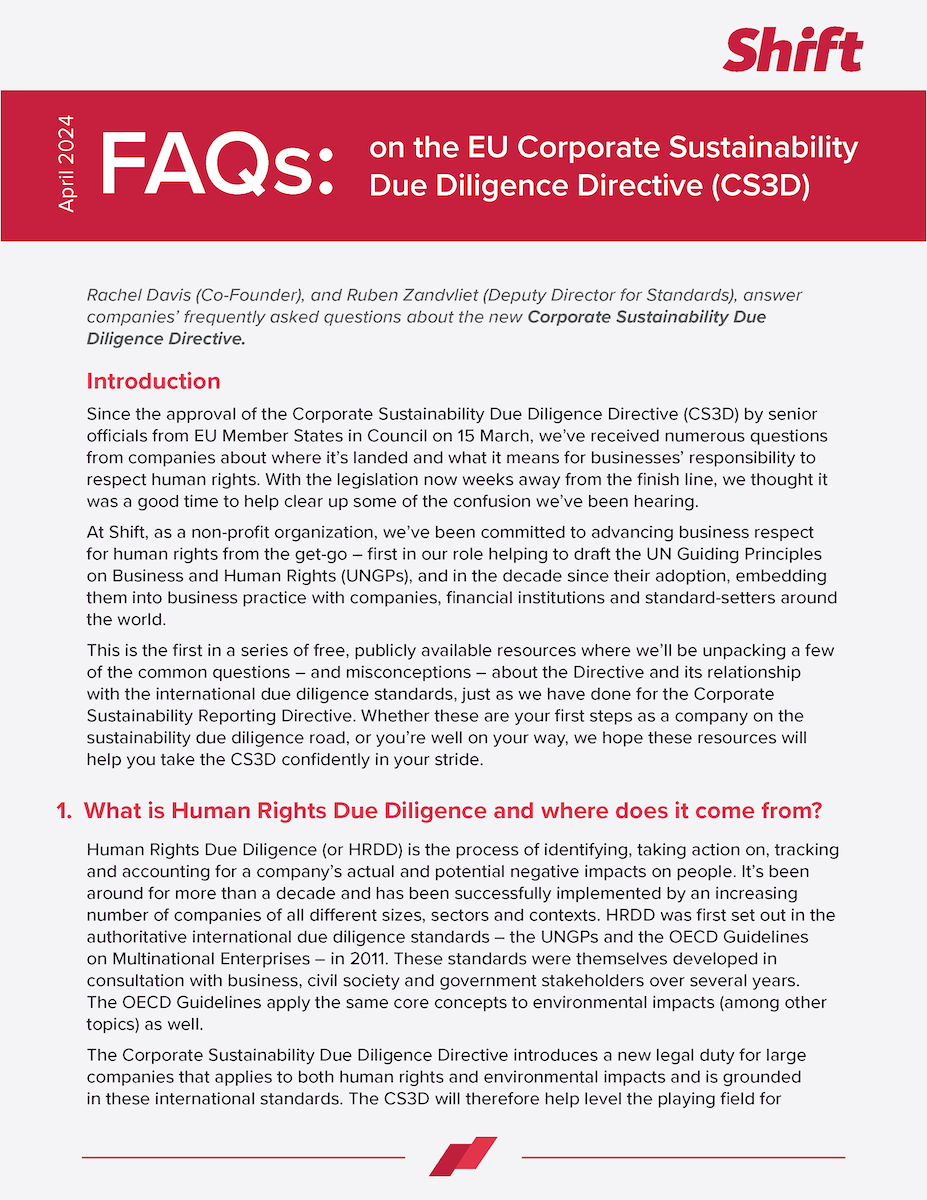Jump to: Overview of our work with financial institutions on the Guiding Principles | Our report on human rights due diligence in high risk circumstances
In alignment with the International Finance Corporation’s (IFC) revised Performance Standards on Environmental and Social Sustainability, the IFC has been exploring the development good practice guidance for its private sector clients on the issue of human rights due diligence in high risk circumstances. Shift provided expert input to the IFC in 2013 on the content of potential guidance.
The Performance Standards’ requirements regarding the environmental and social due diligence processes that all IFC-financed projects must have in place are robust; however, the Performance Standards themselves recognize that, in certain high risk circumstances, it may be appropriate for companies to complement these processes with specific human rights due diligence (see Performance Standard 1, footnote 12). This raises two key framing questions that any guidance on this issue should address:
- Under what circumstances might specific human rights due diligence be appropriate;
- What should human rights due diligence entail in such high risk circumstances?
Any IFC guidance on these questions would need to be practical, relevant and grounded in the challenging realities facing companies that operate in complex, high-risk contexts. It should also build upon existing resources for companies on these issues, and seek to ensure a convergence of guidance wherever appropriate.
While the immediate audience for good practice guidance issued by the IFC is IFC client companies, the impact of the Performance Standards extends well beyond IFC-financed projects – providing a global benchmark referenced by numerous public and private financial institutions, as well as informing the policies and practices of many companies operating in emerging markets.
This collaboration informed a report that we published in 2015 on human rights due diligence in high risk circumstances.



